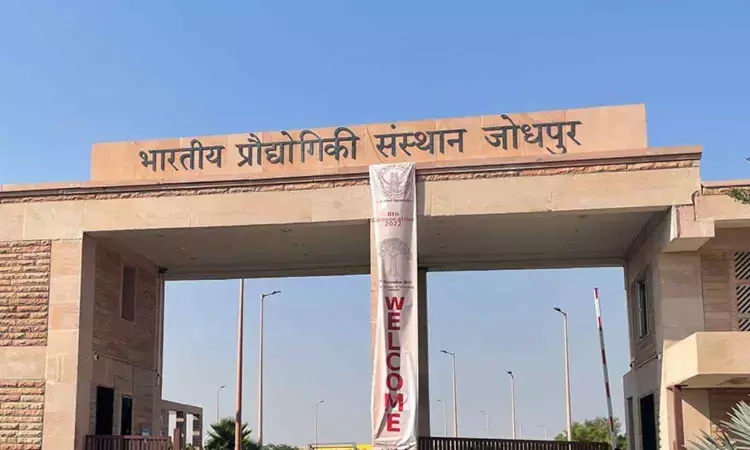- Home
- Medical news & Guidelines
- Anesthesiology
- Cardiology and CTVS
- Critical Care
- Dentistry
- Dermatology
- Diabetes and Endocrinology
- ENT
- Gastroenterology
- Medicine
- Nephrology
- Neurology
- Obstretics-Gynaecology
- Oncology
- Ophthalmology
- Orthopaedics
- Pediatrics-Neonatology
- Psychiatry
- Pulmonology
- Radiology
- Surgery
- Urology
- Laboratory Medicine
- Diet
- Nursing
- Paramedical
- Physiotherapy
- Health news
- Fact Check
- Bone Health Fact Check
- Brain Health Fact Check
- Cancer Related Fact Check
- Child Care Fact Check
- Dental and oral health fact check
- Diabetes and metabolic health fact check
- Diet and Nutrition Fact Check
- Eye and ENT Care Fact Check
- Fitness fact check
- Gut health fact check
- Heart health fact check
- Kidney health fact check
- Medical education fact check
- Men's health fact check
- Respiratory fact check
- Skin and hair care fact check
- Vaccine and Immunization fact check
- Women's health fact check
- AYUSH
- State News
- Andaman and Nicobar Islands
- Andhra Pradesh
- Arunachal Pradesh
- Assam
- Bihar
- Chandigarh
- Chattisgarh
- Dadra and Nagar Haveli
- Daman and Diu
- Delhi
- Goa
- Gujarat
- Haryana
- Himachal Pradesh
- Jammu & Kashmir
- Jharkhand
- Karnataka
- Kerala
- Ladakh
- Lakshadweep
- Madhya Pradesh
- Maharashtra
- Manipur
- Meghalaya
- Mizoram
- Nagaland
- Odisha
- Puducherry
- Punjab
- Rajasthan
- Sikkim
- Tamil Nadu
- Telangana
- Tripura
- Uttar Pradesh
- Uttrakhand
- West Bengal
- Medical Education
- Industry
IIT Jodhpur researchers develop nanosensor for detection of cytokines

Jodhpur: Researchers from the Indian Institute of Technology, Jodhpur, have unveiled a nanosensor designed to swiftly detect cytokines, a group of proteins pivotal in regulating various cells within the body.
"This development aims to reduce the mortality rate occurring due to delayed diagnosis and a lack of early warnings. Moreover, the technology has immense potential to be used as a rapid and point-of-care technique for health monitoring, disease diagnosis, prognosis, and immune response tracking," reads statement from IIT Jodhpur.
Cytokines, among the numerous biomarkers of inflammation, serve as crucial indicators for diagnosing diseases and monitoring their progression.
According to a PTI report, "Cytokines play an important role in tissue damage repair, cancer development and progression, and modulating immune reactions. This is why they are important for developing precision medicine and targeted therapeutics for various conditions like oncology, infectiology and in rheumatological diseases, among others," the statement added.
Prof Ajay Agarwal, Department of Electrical Engineering, IIT Jodhpur, said the technique has provided exciting results.
"This technique which is currently in its development stage has provided exciting and encouraging results for three biomarkers i.e. interleukin-6 (IL-6), interleukin-b (IL-b), and TNF-a which are key pro-inflammatory cytokines, released by inflammatory cells. As of now, the testing is done for controlled samples, but the team aims to take the technology to clinical trials soon. The group is also using this technique, to develop detection protocols for the early-stage and quick diagnosis of Sepsis and Fungal infections," he said.
This novel sensor developed at the IIT uses Surface Enhanced Raman Spectroscopy to detect analytes even at low concentrations. It is based on semiconductor process technology and works on the principle of Surface Enhanced Raman Scattering (SERS).
Hence, it makes this technique powerful and capable of detecting trace-level molecules with high precision and selectivity.
Currently, the most prevalent techniques for cytokine detection include enzyme-linked immunosorbent assay (ELISA) and polymerase chain reaction (PCR). Despite their reliability, these methods are highly time-consuming and necessitate trained personnel, with sample preparation or analysis durations exceeding 6 hours. In contrast, the sensor developed by IIT Jodhpur delivers results within just 30 minutes, rendering it not only efficient but also cost-effective.
Furthermore, this sensor, serving as a rapid and selective diagnostic tool, is complemented by AI for swift and accurate data processing and analysis.
By facilitating faster and more robust diagnoses of autoimmune diseases and bacterial infections, this sensor holds the potential to revolutionize patients' medical treatments. Prompt diagnosis and tracking of diseases can guide the future course of treatment, thereby enhancing patient care and outcomes.
Kajal Rajput joined Medical Dialogues as an Correspondent for the Latest Health News Section in 2019. She holds a Bachelor's degree in Arts from University of Delhi. She manly covers all the updates in health news, hospitals, doctors news, government policies and Health Ministry. She can be contacted at editorial@medicaldialogues.in Contact no. 011-43720751
Dr Kamal Kant Kohli-MBBS, DTCD- a chest specialist with more than 30 years of practice and a flair for writing clinical articles, Dr Kamal Kant Kohli joined Medical Dialogues as a Chief Editor of Medical News. Besides writing articles, as an editor, he proofreads and verifies all the medical content published on Medical Dialogues including those coming from journals, studies,medical conferences,guidelines etc. Email: drkohli@medicaldialogues.in. Contact no. 011-43720751


